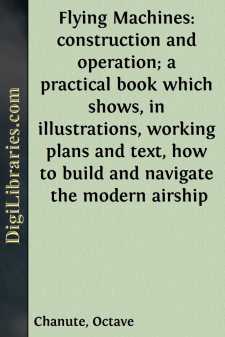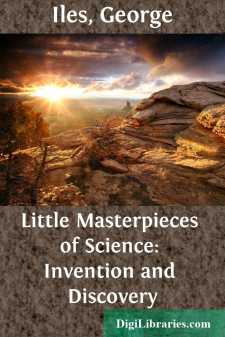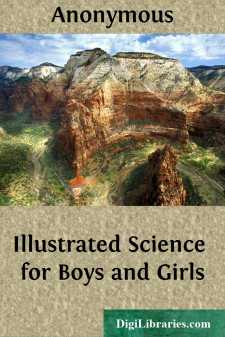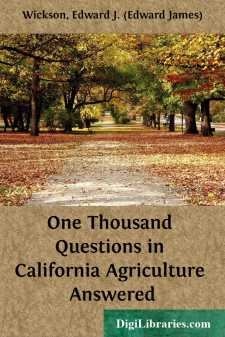Technology & Engineering
Technology & Engineering Books
Sort by:
by:
John Mills
ELECTRICITY AND MATTER My Dear Son: You are interested in radio-telephony and want me to explain it to you. I’ll do so in the shortest and easiest way which I can devise. The explanation will be the simplest which I can give and still make it possible for you to build and operate your own set and to understand the operation of the large commercial sets to which you will listen. I’ll write you a...
more...
THE STEAM-ENGINE. What is steam?—The mechanical energy of steam—The boiler—The circulation of water in a boiler—The enclosed furnace—The multitubular boiler—Fire-tube boilers—Other types of boilers—Aids to combustion—Boiler fittings—The safety-valve—The water-gauge—The steam-gauge—The water supply to a boiler. WHAT IS STEAM? If ice be heated above 32° Fahrenheit, its...
more...
by:
Octave Chanute
CHAPTER I. EVOLUTION OF TWO-SURFACE FLYING MACHINE. By Octave Chanute. I am asked to set forth the development of the "two-surface" type of flying machine which is now used with modifications by Wright Brothers, Farman, Delagrange, Herring and others. This type originated with Mr. F. H. Wenham, who patented it in England in 1866 (No. 1571), taking out provisional papers only. In the abridgment...
more...
by:
George Iles
PREFACE To a good many of us the inventor is the true hero for he multiplies the working value of life. He performs an old task with new economy, as when he devises a mowing-machine to oust the scythe; or he creates a service wholly new, as when he bids a landscape depict itself on a photographic plate. He, and his twin brother, the discoverer, have eyes to read a lesson that Nature has held for ages...
more...
CHAPTER I. THE APPARATUS. To a proper comprehension of the succeeding chapters, it is necessary first of all to be familiar with the apparatus employed in carrying out electro-balneological treatment, and I therefore proceed to give a description of this. It may conveniently be divided as follows, viz. a. The tub; b. The electrodes and connections; c. The water; d. Chemicals; e. The batteries. (a) The...
more...
by:
Anonymous
HOW NEWSPAPERS ARE MADE. We will suppose that it is a great newspaper, in a great city, printing daily 25,000, or more, copies. Here it is, with wide columns, with small, compact type, with very little space wasted in head lines, eight large pages of it, something like 100,000 words printed upon it, and sold for four cents—25,000 words for a cent. It is a great institution—a power greater than a...
more...
Depth of Soil for Fruit. Would four feet of good loose soil be enough for lemons? Four feet of good soil, providing the underlying strata are not charged with alkali, would give you a good growth of lemon trees if moisture was regularly present in about the right quantity, neither too much nor too little, and the temperature conditions were favorable to the success of this tree, which will not stand as...
more...
by:
Norman F. Joly
CHAPTER ONE THE DEVELOPMENT OF ELECTRICITY The phenomenon which Thales had observed and recorded five centuries before the birth of Christ aroused the interest of many scientists through the ages. They made various practical experiments in their efforts to identify the elusive force which Thales had likened to a 'soul' and which we now know to have been static electricity. Of all forms of...
more...
INTRODUCTION THE Germans interpret their new national colours—black, red, and white—by the saying, "Durch Nacht und Blut zur licht." ("Through night and blood to light"), and no work yet written conveys to the thinker a clearer conception of all that the red streak in their flag stands for than this deep and philosophical analysis of "War" by Clausewitz. It reveals...
more...
CHAPTER I. INTRODUCTION. Our distance from the old world, and the favorable circumstances in which we have been placed with respect to the other nations of the new world, have made it so easy for our government to adhere to a pacific policy, that, in the sixty-two years that have elapsed since the acknowledgment of our national independence, we have enjoyed more than fifty-eight of general peace; our...
more...











